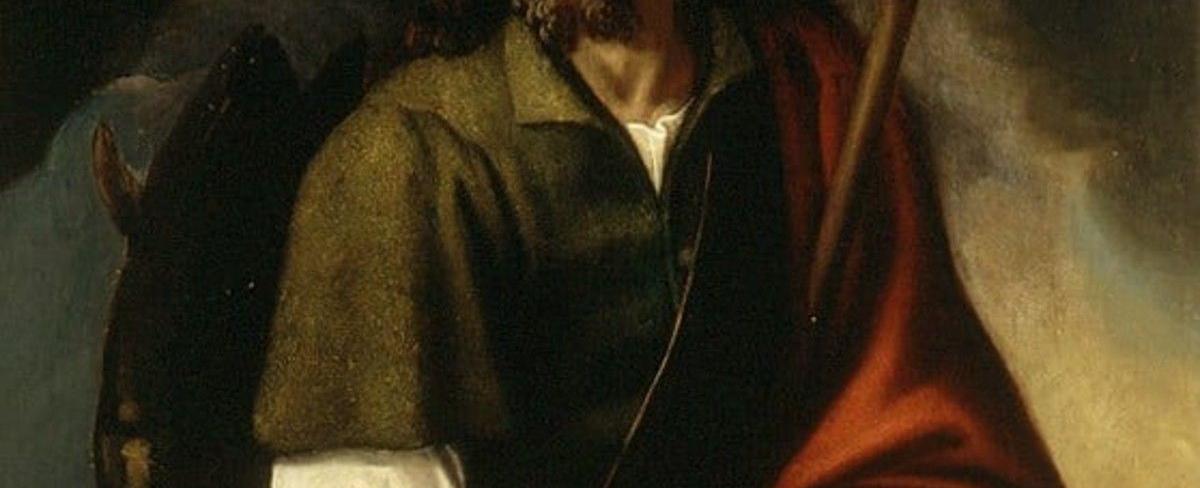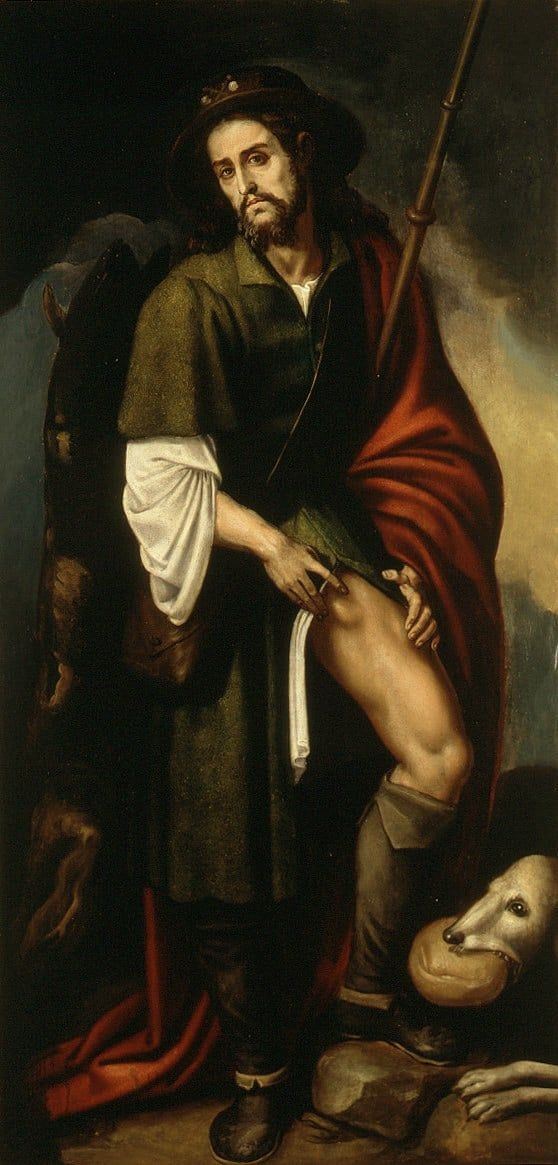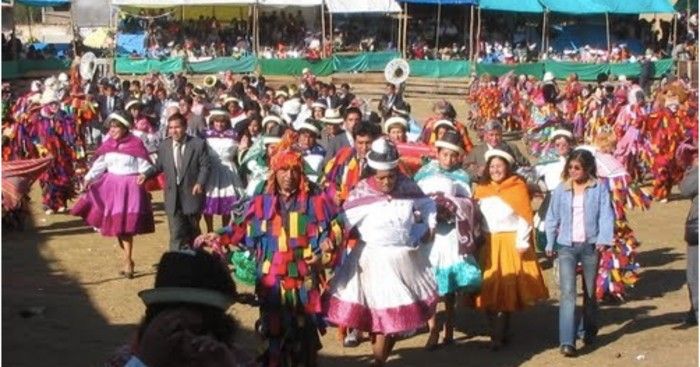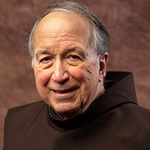Saint Roch: Provider of Loving Care to Humans and Animals

On August 16, the memory of Saint Roch, a Secular Franciscan, is celebrated in many places with great festivity.
Renouncing wealth, becoming Franciscan penitent
There is no contemporary life of Saint Roch, but according to popular tradition, he was born into a noble family in Montpellier, France. When he was around 20 years old, he renounced his wealth and became a lay Franciscan penitent, choosing the life of an itinerant pilgrim. As he made his path to Rome, he stopped in a number of towns where he would stay in hospices for a time, treating and sometimes healing victims of the bubonic plague, and then moving on.
Legend of being a plague victim
His legend tells us that Roch himself became a victim of the plague near Piacenza and collapsed in a forest but was helped back to health by a dog who brought him bread and licked his wounds. Later on, Roch went to a town where he was falsely accused of being a spy from an enemy territory, and he died in prison there.

Saint Roch, carrying his pilgrim's staff, pointing to the plague sore on his leg, with his faithful dog bringing him a loaf of bread, is depicted in this painting by Francisco Ribalta (1563-1628).
Invoked for protection against contagious diseases
Roch quickly became an object of popular veneration, especially in Italy (where he is known as Saint Rocco), southern France, and Spain (known as San Roque), where he was invoked for protection against the plague and other contagious diseases such as cholera. In 1485 his body was moved from Voghera, Italy, to Venice where a church was built to house his remains.

The Church of Saint Rocco in Venice, Italy, houses Saint Roch's remains.
More accurate life details
For many years, writers gave his dates as c. 1295-1327, but the bubonic plague was yet unknown in Europe at that time. Recent research indicates that he was indeed born in Montpellier but a half century later—in the 1340s—and died in Voghera, Italy, between 1376-1379. These dates correspond much better with the traditional details of his life.

The Scuola Grande di San Rocco, Venice, seat of a charitable confraternity dedicated to Saint Roch founded in 1478, is famous for its paintings by Tintoretto.
Importance of Franciscan tradition of providing loving care
Roch's life recalls the importance in our Franciscan tradition of providing loving care for our sick brothers and sisters. In art, he is often depicted as a pilgrim, with staff and hat, pointing to a plague sore on his leg, and with his faithful dog. For this reason, Roch is also invoked as a protector of domestic animals.
If any of the brothers falls sick, wherever he may be, let the other brothers not leave him behind unless one of the brothers, or even several of them, if necessary, is designated to serve him as they would want to be served themselves.—Francis Earlier Rule of the Friars Minor, 10.1
Traditional prayer to Saint Rocco
O Great St. Rocco, deliver us, we beseech you, from contagious diseases, and the contagion of sin. Obtain, for us, a purity of heart which will assist us to make good use of our health, and to bear sufferings with patience. Teach us to follow your example in the practice of penance and charity, so that we may, one day enjoy the happiness of being with Christ, Our Savior, in Heaven. Amen.

In many towns of Italy—and in Italian emigrant communities throughout the world—there are processions and celebrations on the feast of Saint Rocco. Hopefully, this year many of these festivals resumed after being cancelled in 2020 due to COVID-19.

A San Roque festival takes place in the Junín region of Peru.
Dominic Monti, OFM
Professor of Franciscan Research in the Franciscan Institute of St. Bonaventure University
Dominic V. Monti, OFM, is a Franciscan Friar of Holy Name Province (USA) and currently professor of Franciscan Research in the Franciscan Institute of St. Bonaventure University. He devoted the greater part of his ministry to teaching the History of Christianity, in particular the history of the Franciscan movement. He has contributed two volumes to the Works of St. Bonaventure series and is author of Francis & His Brothers, a popular history of the Friars Minor.

